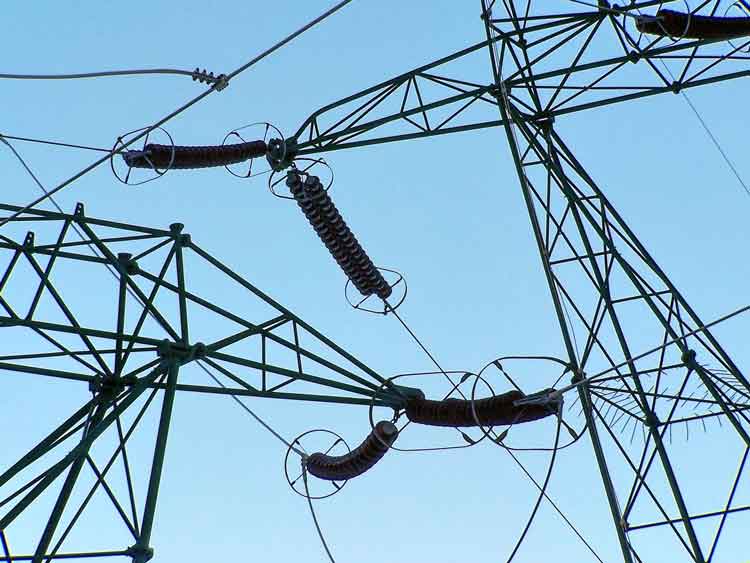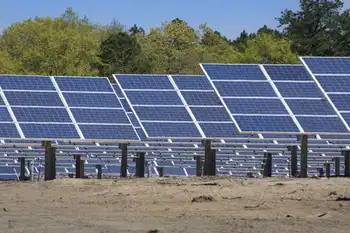Power Plant Debate Pits Clean Air, Cheap Electricity
Washington - --- Environmental groups and the energy industry will battle today and Wednesday in private meetings with U.S. Senate staff members over attempts to improve air quality by restricting coal-burning utilities.
At the same time, the Bush administration is continuing its internal debate over whether to drop lawsuits that accuse utilities, including Atlanta-based Southern Co., of evading federal restrictions on pollutants. The Environmental Protection Agency could present Congress with a proposal on the issue this week.
At stake in the increasingly complicated dispute are levels of pollutants in the nation's skies and standards for electricity-producing power plants that burn coal. Coal is a cheap, abundant energy source, but environmentalists say it is the main cause of hundreds of deaths each year from dirty air.
Southern Co. spokesman John Sell said the low price of coal will continue to make it an attractive fuel for power plants.
"Also, a lot of those plants are older plants that have been paid off," Sell said.
"It's like driving a car. It gets a whole lot cheaper, once you get that note paid off, in the operation of your vehicle."
The three main questions to be discussed are:
Should new limits be placed on the amount of noxious sulfur and nitrogen compounds allowed to escape from the smokestacks of hundreds of coal-burning electric power plants? Scores of them are allowed to operate with less pollution control than is required on a car.
Should the government impose a cap on the amount of carbon dioxide that power plants can release into the atmosphere? Carbon dioxide is believed to be primarily responsible for global warming.
Should limits be imposed on the amount of mercury the plants can release?
Sen. James Jeffords (I-Vt.) announced last week that members of his staff and those of Sens. Robert Smith (R-N.H.), Joe Lieberman (D-Conn.) and George Voinovich (R-Ohio) would preside over "frank" discussions by industry and environmental lobbyists and state pollution officials.
Jeffords is chairman of the Senate Environment and Public Works Committee and author of a bill to tighten restrictions on sulfur dioxide and nitrogen oxide pollution by power plants and for the first time to impose limits on the amount of carbon dioxide and mercury.
For years, the burning of coal has been the biggest source of pollution by those four substances, which separately or together are blamed for such problems as acid rain, global warming, respiratory diseases and neurological damage.
Environmental groups support Jeffords' plan to impose new limits on mercury pollution and carbon dioxide, and they are fighting efforts to get the Bush administration to back away from enforcement of existing restrictions on sulfur dioxide and nitrogen oxides.
Under pressure from electric power companies, the administration is considering pulling out of a series of lawsuits in which the Clinton administration accused power companies of evading Clean Air Act restrictions on the two pollutants.
Among recommendations issued earlier this year by the White House Energy Task Force, chaired by Vice President Dick Cheney, was a re-evaluation of a complicated anti-pollution measure called "New Source Review."
The task force questioned whether the provision inhibits investment in new generating capacity. In addition to considering whether to withdraw from the lawsuits, the EPA may propose legislation that would eliminate the provision from the Clean Air Act.
"A lot of these utilities --- and the Southern Co. was the ringleader --- went to Cheney and said, 'Get these guys off our backs,' " said Frank O'Donnell, executive director of the Clean Air Trust, an environmental group.
New Source Review was included in Clean Air Act amendments passed by Congress in 1977. It requires industrial facilities that produce "new sources" of sulfur dioxide and nitrogen oxides to install pollution-control equipment, primarily "scrubbers" and catalytic converters.
However, Congress "grandfathered" existing electric power plants from having to comply with the requirements, based on the reasoning that as the plants aged they would become obsolete and would be phased out. But falling coal prices breathed new life into coal-powered generators. Coal accounts for more than half of the electricity generated in America each year.
Statistics compiled by economists with the Energy Department's Energy Information Administration show a steady decline in the cost of coal over a period of 17 years.
When expressed in terms of 1997 purchasing power, it took about half as much money to produce kilowatts in a coal-powered electric generating plant that year as it did in 1981.
The result turned upside-down the financial assumptions behind the Clean Air Act amendments of 1977.
Instead of phasing out the coal plants and replacing them with new plants, some utilities simply repaired the existing plants and kept them operating --- without having to comply with the sulphur dioxide and nitrogen oxide regulations.
In 1999, Carol Browner, then head of the EPA, said operators of power plants in the South and Midwest, under the guise of "maintenance," had built new generating capacity and evaded required emission controls and the New Source Review requirements.
The next day, the Clinton Justice Department sued the owners of 32 coal plants in Georgia, Mississippi, Alabama, Florida, Ohio, Indiana and Illinois alleging they violated New Source Review. Attorney General Janet Reno said the plants illegally released a million tons of air pollution.
Additional plants were added to the complaint later. Defendants in the lawsuits make no secret of their desire for the changes.
"For 20 years, we operated in full light of the EPA," Southern Co.'s Sell said. "They knew what our maintenance practices were. They looked at that and said it did not constitute New Source Review. Carol Browner and her deputies then said, 'You know what? We've been misinterpreting that rule for 20 years, and not only are we going to change it going forward, we're going to say you broke the rules 20 years ago.' "
EPA Administrator Christie Whitman has held meetings around the country to evaluate New Source Review.
Related News

California Faces Power Outages and Landslides Amid Severe Storm
CALIFORNIA - California is grappling with a dual crisis of power outages and landslides following a severe storm that has swept across the state. The latest reports indicate widespread disruptions affecting thousands of residents and significant infrastructure damage. This storm is not only a test of California's emergency response capabilities but also a stark reminder of the increasing vulnerability of the state to extreme weather events.
Storm’s Impact on California
The recent storm, which hit California with unprecedented intensity, has unleashed torrential rain, strong winds, and widespread flooding. These severe weather conditions have overwhelmed the state’s infrastructure, leading to significant power outages…




